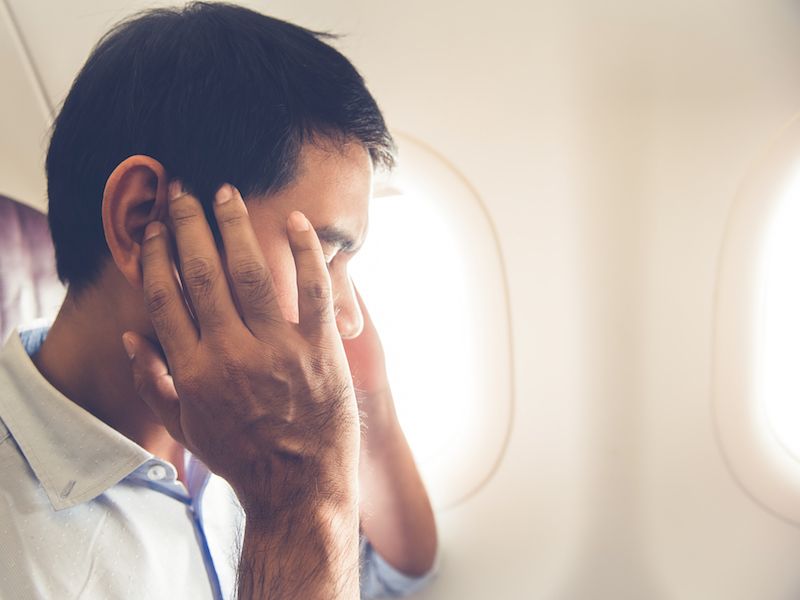
With tinnitus, it’s normal to have good and bad days but why? Tinnitus is the medical name for ringing in the ears, a condition more than 45 million Americans endure, according to the American Tinnitus Association, and 90 percent of them also suffer from some amount of hearing loss.
But what is hard to understand is why it’s virtually non-existent on some days and on others the ringing is so intrusive. Some common triggers may explain it but it’s still unclear why this occurs.
What Is Tinnitus?
Tinnitus describes a condition where the patient hears phantom noises such as:
- Roaring
- Ringing
- Hissing
- Buzzing
- Clicking
One of the things that makes tinnitus so troubling is that you hear it but no one else does. The noise can vary in pitch and volume, too. One day it could be a roar and the next day be gone completely.
What is The Cause of Tinnitus?
The most prevalent cause is a change in a person’s hearing. The cause of these changes could be:
- Ear bone changes
- Noise trauma
- Earwax build up
- Aging
A few other potential causes include:
- Acoustic neuroma
- A problem with the carotid artery or jugular vein
- TMJ problems
- High blood pressure
- Head trauma
- Meniere’s disease
- Tumor in the head or neck
- Atherosclerosis
For a certain fraction of people, there isn’t any obvious reason for them to have tinnitus.
See your doctor to have your ears examined if you suddenly notice the symptoms of tinnitus. The problem might be a symptom of a life threatening condition like heart disease or it could be something treatable. A side effect of a new medication may also be the cause.
For some reason the ringing gets worse on some days.
For those who suffer from tinnitus it’s a medical mystery why it gets worse on some days. The reason might be different for each person, too. There are common triggers that may explain it, though.
Loud Events
Loud events such as concerts, club music, and fireworks are enough to aggravate your tinnitus. If you expect to be subjected to loud noise, your best option is to use hearing protection. They make earplugs, for example, that will allow you to enjoy music at a live performance but reduce the effect it has on your hearing.
Another thing you can do is to put some distance between you and the source of the noise. When you attend a fireworks display don’t go up front and avoid the front row at a concert. Combined with hearing protection, this will diminish the impact.
Loud Noises at Home
Things around the house can be just as harmful as a loud concert. Tinnitus can be triggered by a lawn mower for instance. Here are a few other sounds from around the house that can cause injury:
- Wearing headphones – The function of headphones is to boost the volume of your audio which could be irritating your tinnitus so it could be time to lose those earbuds.
- Laundry – For example, if you fold clothes while the washer is running.
- Woodworking – The tools you use are enough to cause a problem
If there are things you can’t or aren’t willing to avoid like woodworking, wear hearing protection.
Noises at Work
Loud noises on the job have the same effect as a concert or the lawnmower. It’s especially important to wear ear protection if you work in construction or are around machines. Your employer will probably supply ear protection if you make them aware of your concerns. Spend your personal time letting your ears rest, too.
Changes in Air Pressure
When most people fly they experience ear popping. The change in air pressure combined with the noise from the plane engines can cause an increase in tinnitus. Think about ear protection if you are traveling and bring some gum to neutralize the air pressure.
Changes in air pressure occur everywhere not just on a plane. If you have sinus issues, for example, consider taking medication to help alleviate them.
Medication
Medication could also be the issue. Certain medications affect the ears and are known as ototoxic. Some prevalent medications on the list include:
- Over-the-counter pain relievers
- Diuretics
- Antibiotics
Have a talk with your doctor if you experience an intensifying of tinnitus after you begin taking a new prescription. It may be possible to switch to something else.
For some people tinnitus is not just annoying it’s disabling. The first step is to figure out what’s causing it and then look at ways to keep it under control from day to day.